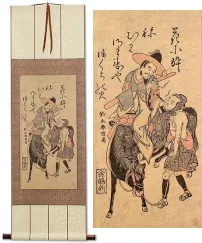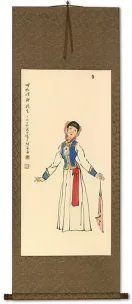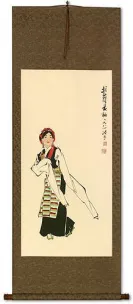Many custom options...
And formats...

Daddy’s Girl / Daddy’s Boy in Chinese / Japanese...
Buy a Daddy’s Girl / Daddy’s Boy calligraphy wall scroll here!
Daddy’s Girl / Daddy’s Boy
This in-stock artwork might be what you are looking for, and ships right away...
Gallery Price: $60.00
Your Price: $36.88
Gallery Price: $60.00
Your Price: $36.88
Gallery Price: $60.00
Your Price: $36.88
Gallery Price: $108.00
Your Price: $59.88
Gallery Price: $90.00
Your Price: $35.00
The following table may be helpful for those studying Chinese or Japanese...
| Title | Characters | Romaji (Romanized Japanese) |
| Daddy’s Girl Daddy’s Boy | お父さん子 | otousanko / otosanko |
Successful Chinese Character and Japanese Kanji calligraphy searches within the last few hours...

















